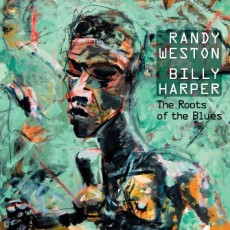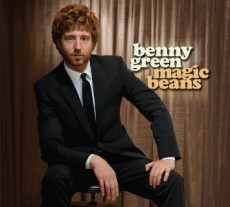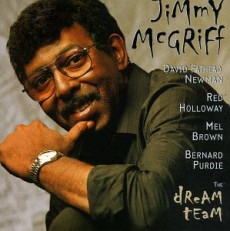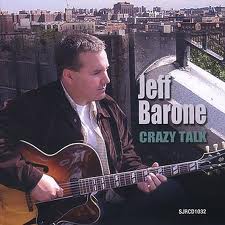
Daily Dose Of Jazz…
Randy Weston was born April 6, 1926 in Brooklyn, New York of Jamaican heritage and studied classical piano and dance as a child. He attended and graduated from Boys High School in Bedford-Stuyvesant taking piano lessons from Professor Atwell who allowed him to play outside the classical music paradigm. Among his piano heroes are Count Basie, Nat King Cole, Art Tatum, Duke Ellington and his cousin Wynton Kelly but it was Thelonious Monk who had the greatest impact.
After serving in the Army during World War II he ran a restaurant that was frequented by many of the leading bebop musicians. In the late 1940s Weston began gigging with bands including Bullmoose Jackson, Frank Culley and Eddie “Cleanhead” Vinson. He worked with Kenny Dorham in 1953 and Cecil Payne in ’54 before forming his own trio and quartet. That same year he recorded and released his debut as a leader, Cole Porter In A Modern Mood.
In 1955 Randy was voted “New Star Pianist” in Down Beat magazine’s International Critics’ Poll. Several fine albums followed, with the best being Little Niles near the end of that decade for which trombonist Melba Liston provided arrangements for a sextet playing his compositions.
By the 1960s, Weston’s music prominently incorporated African elements, and again teamed up with arranger Melba Liston on two albums, a large-scale suite Uhuru Afrika and Highlife. During these years his band often featured the tenor saxophonist Booker Ervin, traveled throughout Africa, settled in Morocco, running the African Rhythm Club in Tangier from 1967 to 1972 and produced a best-selling record for CTI titled Blue Moses on which he plays electric keyboard.
For a long stretch Weston recorded infrequently on smaller record labels but in 1992 he released a two-CD recording The Spirits of Our Ancestors featuring once again arrangements by his long-time collaborator Melba Liston as well as Dizzy Gillespie and Pharoah Sanders guest playing. He would go on to produced a series of albums in a variety of formats: solo, trio, mid-sized groups, and collaborations with the Gnawa musicians of Morocco.
Among his many honors and awards he has received the French Order of Arts and Letters, Japan’s Swing Journal Award, the Black Star Award, the NEA Jazz Master. Randy has been given honorary degrees from Brooklyn College, City University of New York and Colby College, was the recipient of a Guggenheim Fellowship, has been honored by King Mohammed VI of Morocco, and he has been celebrated in a “Giant of Jazz” concert with all-star musicians Monty Alexander, Geri Allen, Cyrus Chestnut,, Barry Harris, Mulgrew Miller, and Billy Taylor.
After more than five decades devoted to music, pianist and composer Randy Weston continues to perform throughout the Americas, Africa, Asia, the Caribbean, and Europe and uses Ghananian master drummer Kofi Ghanaba’s composition “Love, the Mystery Of…” as his theme song for some 40 years.
More Posts: piano

Daily Dose Of Jazz…
Evan Shaw Parker was born on April 5, 1944 in Bristol, England and his original inspiration was Paul Desmond and the cool jazz saxophone scene with later influences being Warren Marsh and Lee Konitz. Better known for his later work, he rapidly assimilated the American avant-garde of John Coltrane, Pharoah Sander, Albert Ayler and others and forged his own, instantly identifiable style.
Parker’s music of the 1960s and 1970s involves fluttering, swirling lines that have shape rather than tangible melodic content. He began develop methods of rapidly layering harmonics, false notes, circular breathing and rapid tonguing which initially were so intense that he would find blood dripping onto the floor from the saxophone. He also became a member of the important big band, The Brotherhood of Breath.
Evan became interested in electronics and his collaboration electronically processed his playing in real time, creating a musical feedback loop or constantly shifting soundscape. He has recorded a large number of albums both solo or as a group leader, and has recorded or performed with such musicians as Peter Brotzmann, Derek Bailey, Anthony Braxton, Cecil Taylor, George Lewis, Joe McPhee, Mark Dresser and Dave Holland among numerous others.
Parker is one of the few saxophone players for whom unaccompanied solo performance is a major part of his work. Along with Bailey and drummer Tony Oxley founded the Incus record label in 1970. The label continued under Bailey’s sole control, after a falling-out between the two men in the early 1980s and currently Parker curates the Psi record label. He also performs monthly at London’s Vortex Jazz Club.
Though Parker’s central focus is free improvisation, he has also occasionally appeared in more conventional jazz contexts, such as Charlie Watts Big Band, Kenny Werner’s ensembles, and Gavin Bryars’s After the Requiem. He has also performed in pop and rock settings but remains a pivotal figure in the development of European free jazz and free improvisation and has pioneered or substantially expanded an array of extended techniques on the European free jazz scene.
More Posts: saxophone

Daily Dose Of Jazz…
Benny Green was born in New York City on April 4, 1963 and grew up on the West coast in Berkeley, California. From the age of seven he studied classical piano and had an interest in jazz from an early point, as his father played jazz tenor saxophone.
Discovered by Faye Carroll, while still in his teens worked in a quintet led by Eddie Henderson. He attended Berkeley High, participated in the school’s jazz ensemble and in his later school career had a weekly trio gig at Yoshi’s, which marked his entrance to the world of professional jazz.
After graduation he spent time in San Francisco but became more successful on his return to New York. Green joined Betty Carter’s band in 1983 and since 1991 has led his trio, recording for Blue Note, Telarc and Criss Cross.
As an educator Benny frequently teaches in workshops across the United States, such as Jazz Camp West in California, and Centrum/Jazz Port Townsend in Washington. He currently is on faculty at the University of Michigan.
Pianist Benny Green has sixteen albums as a leader, 75 to date as a sideman and has performed and recorded with Art Blakey, Anat Cohen, Ray Brown, Gary Bartz, Bob Belden, Clark Terry, Don Braden, Cecil Brooks III, Arnett Cobb, Mark Elf, Larry Gales, Tim Hagans, Jay Hoggard, Freddie Hubbard and Milt Jackson among many, many others. He continues to perform, record and tour.
More Posts: piano

Daily Dose Of Jazz…
Jimmy McGriff was born James Harrell McGriff on April 3, 1936 in Germantown, Pennsylvania and started playing piano at the age of five. By his teens he learned to play vibes, alto saxophone, drums and upright bass. His first group was as bassist in a piano trio. When he joined the United States Army he served as an MP during the Korean War, later became a police officer in Philadelphia for two years.
Music kept drawing McGriff’s attention away from the police force. His childhood friend, Jimmy Smith began earning a substantial reputation and he became entranced by the organ sound while Richard Groove Holmes played at his sister’s wedding. Holmes went on to become his teacher and friend.
Buying his first Hammond B-3 organ in 1956, spent six months learning the instrument, and then studied at New York’s Juilliard School. Influenced by Count Basie, Howard “The Demon” Whaley, Austin Mitchell and Milt Buckner with whom he studied privately and as well with Jimmy Smith and Sonny Gatewood.
Forming a combo Jimmy played around Philadelphia often featuring tenor saxophonist Charles Earland, who soon switched to the instrument. During this time, McGriff also accompanied such artists as Don Gardner, Arthur Prysock, Candido and Carmen McRae, who came through town for local club dates.
In 1961, McGriff’s trio recorded an instrumental version of Ray Charles’ hit “I Got A Woman” for Jell Records, and after the record received substantial local airplay, Sue Records picked it up and recorded a full album of McGriff’s trio, released in 1962. The album established his credentials as a fiery blues-based organist, well versed in gospel, soul and “fatback groove”.
McGriff would recorded a series of popular albums by the mid Sixties ending with what still stands as one of his finest examples of blues-based jazz, Blues for Mister Jimmy. Over the next decade he went on to continue recording for Solid State, opened his own supper club “The Golden Slipper” in Newark, New Jersey and performed regularly performed with the Buddy Rich Band.
Though he retired from the music industry in 1972 to start a horse farm in Connecticut his records were being issued at three to four a year by Sonny Lester’s Groove Merchant label. By 1973, Jimmy was touring relentlessly and actively recording again and though disco was gaining a hold it did little to stop the organist. He produced some of his best music during this period: Stump Juice, Red Beans and Outside Looking In.
The 1980s saw McGriff working with Rusty Bryant, Al Grey, Red Holloway, David “Fathead” Newman, Frank Wess and Eric Alexander, and started a longtime partnership with Hank Crawford. Into the new millennium he experimented with the Hammond XB-3 and organ synthesizer with Midi enhancements. Along with his soul jazz sound, forming the Dream Team group he recorded and released his last album, McGriff Avenue in 2001.
On May 24, 2008 at the age of 72, hard bop and soul jazz organist and bandleader Jimmy McGriff, who left a catalogue of 57 albums to posterity, passed away in Voorhees Township, New Jersey from complications due to multiple sclerosis.
More Posts: organ

Daily Dose Of Jazz…
Jeff Barone was born on April 2, 1970 in Syracuse, New York and after hearing a Joe Pass recording received his first guitar at age eight. By age 16 he was playing in local jazz clubs and invited to play with touring bands coming to his hometown. During this period he also performed with the Syracuse Symphony Orchestra as well as vocalist Al Martino.
Jeff went on to matriculate through Ithaca College studying classical guitar and percussion. His next stop was the Manhattan School of Music leaving with a Masters in jazz performance. While in New York he worked small clubs with Evelyn Blakey, was part of the Harlem organ scene, and did a stint with Reuben Wilson.
Teaming with guitarist Jack Wilkins, who was instrumental in getting Barone gigs with the Vanguard and the Mingus Epitaph Orchestras, they co-produced Crazy Talk, his first album, with a mix of standards and originals. His next project would be Open Up. He would go on to work with Tom Harrell, Warren Chiasson, Joe Magnarelli, Eddie Montiero and Bobby Caldwell’s Big Band.
He is the guitarist and assistant conductor for the Big Apple Circus in New York City, has subbed on Broadway shows such as Wicked, Seussical and The Dead, and was recently included in Scott Yanow’s book The Great Jazz Guitarists: The Ultimate Guide. Guitarist Jeff Barone continues to perform, record and tour in between his other duties.
More Posts: guitar


